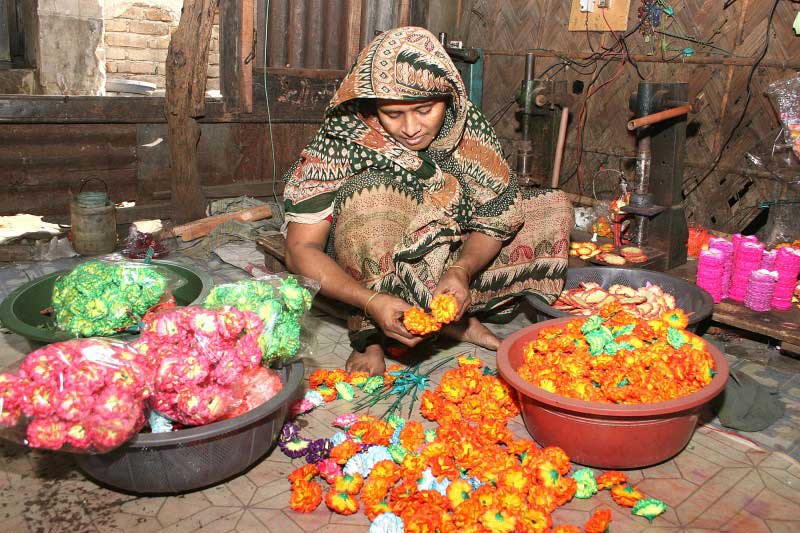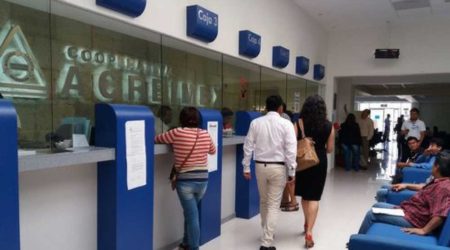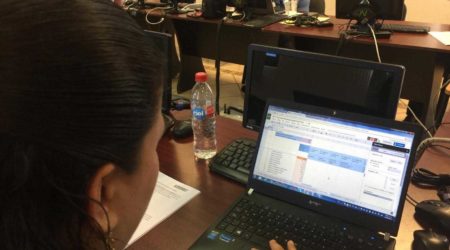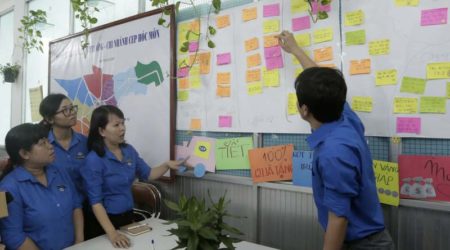Mobile Money Meets Microcredit: Three Key Decisions in Taking a Concept from Design to Pilot

In a previous blog post, we were introduced to how SAJIDA Foundation in Bangladesh is using evidence from data analytics, business case analysis and client research to improve cross-selling as part of the OPTIX project. SAJIDA competes with numerous microfinance institutions by providing relatively similar credit and savings products to support low-income clients. In this post, we discuss three key evidence-based programmatic decisions that were necessary to take a new mobile financial service (MFS)-based microfinance initiative from the design table to pilot testing in the field starting August 2016. This initiative enables SAJIDA to disburse loans directly into bKash accounts of its members, allows members to make loan repayments and deposit savings from their mobile wallets, and is being piloted in five branches with rather varied profiles. These observations are made from the point of view of staff at Bankable Frontier Associates who have been intimately involved with SAJIDA since the inception of OPTIX.
EXPANDING THE PILOT POPULATION
The first major design decision involved transitioning from offering loans only to those members who already had bKash accounts, to offering them to anyone interested, including those who did not have their own wallet and needed to set one up. The initial decision was based on the existence of a seemingly large number of “bKash-ready” members — 46 percent of the respondents in a survey conducted at the pilot locations said they had used bKash, and about a third of them reported having their own account.
In reality, it turned out that most of the members, the majority of whom are female, did not actually own their own wallets, but were referring to their spouse’s or children’s to which they had direct access. While jointly owned or shared wallets are quite common, Know Your Customer (KYC) requirements and the potential loss of agency (i.e. having to rely on others for electronic funds versus direct control in a cash-based transaction) meant that the pilot would have to accommodate members without their own wallets. SAJIDA branch managers now actively help members open bKash accounts as needed.
BRIDGING TWO SYSTEMS
The second major design decision was around creating an online portal that would intermediate data between bKash’s systems and SAJIDA’s own portfolio management system (PMS). We do not take to recommending bespoke systems lightly, but with bKash APIs being rather limited and the vendor requiring a lengthy period of time to make changes to the PMS, we decided to develop a “middleware” engine that automated much of the required activities and was designed to be nimble and allow for rapid iteration.
The portal allows collection of disbursement requests from the branch based on pre-validated member information, and collation at the head office before the day’s disbursement requests are sent to bKash. Unsuccessful disbursements are flagged for follow-up, which can happen if there is an issue with the recipient’s wallet. Members make one repayment per month, and that is allocated amongst principal, interest, compulsory savings and voluntary savings based on a pre-specified sequence, where principal and interest are paid first, then compulsory savings, with the residual being allocated to voluntary savings. An accountant updates the PMS based on the processed information available at the portal. This update will become automatic in the near future to save even more staff time, but existing technical challenges meant starting the pilot with a semi-manual process that mirrors updates based on collection sheets.
DESIGNING TO BE LEAST DISRUPTIVE
The third major design decision was around how pervasive the process changes and integration would be. On one hand, we could have chosen to reorient all existing processes, so that everyone from loan officers in the field to branch managers and accountants in the branches to audit and monitoring staff, interacted with bKash-related items, thus aiming for a seamless integration. On the other hand, we could have designed the interactions to be the least disruptive, so that most of the existing processes were preserved and the bulk of the bKash-related activities fell on a small number of individuals. SAJIDA opted for the latter, reasoning that staff would still have to manage cash-based loans and savings while mobile money loans take off; it would be easier to train a smaller number of key personnel; and there were enough moving parts to test and refine before wholesale integration was attempted.
With that in mind, the branch accountants now have the primary role of inputting disbursement information and updating the PMS with collection information. The branch managers and one individual from the head office finance department have specific oversight roles. Clients use the same passbooks to record transactions. Most importantly, the loan officers go to the field with the same paper-based collection sheets and update passbooks, just as they would for a cash loan, minus the cash-handling. And while most of the loans are disbursed in bulk based on collated information for the day, branch staff retain the ability to conduct one-off disbursements, too, for specific clients whose due diligence requires extra attention.
The pilot has had a strong start, with mobile money loan disbursements occurring every week at each of the five branches. SAJIDA has dedicated and committed staff members at the head offices and branches who are proactively promoting this new initiative while embracing the flexibility required in a pilot. bKash has been an active partner in troubleshooting issues, whether they are related to opening accounts or automatic processing of collection data. The talented developers at Ntitas, a Dhaka-based tech startup, continue to work their magic on the intermediate portal that makes a lot of the bookkeeping possible.
2016 seems to be an exciting year for MFS solutions in Bangladesh. We are cautiously optimistic that mobile-money based loans by SAJIDA Foundation will be one of the initiatives that finds its place amongst the multitude of successful solutions being deployed this year.
This blog post was originally posted on NextBillion.



